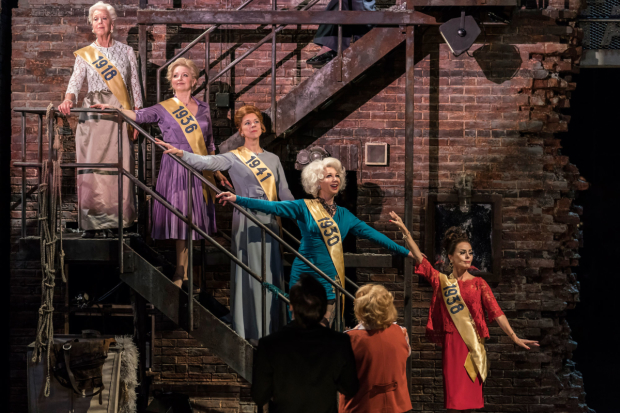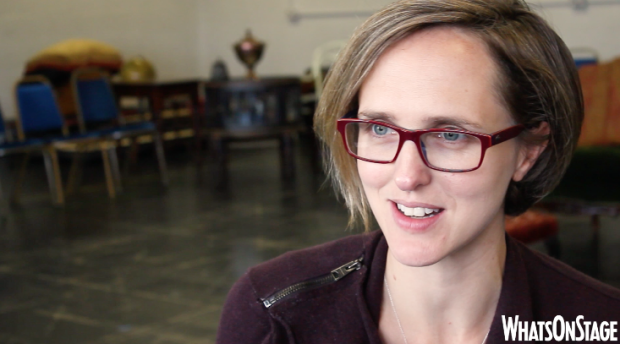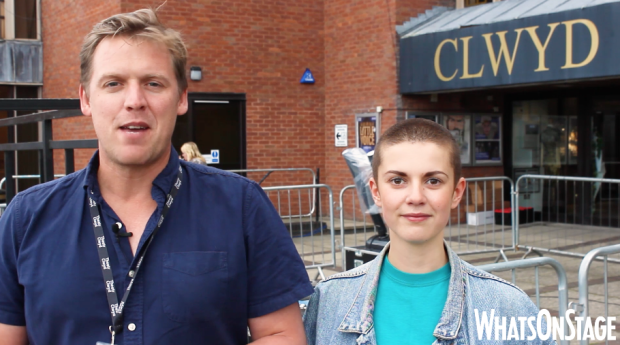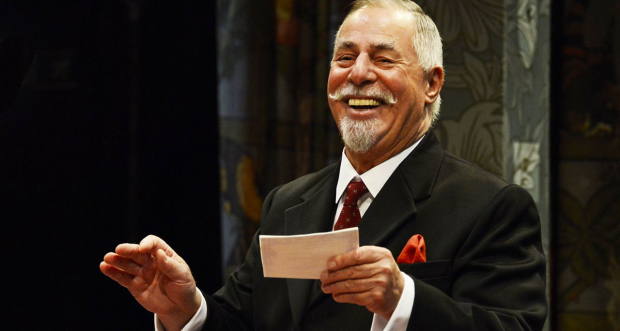Review: We're Still Here (Byass Works, Port Talbot)
Early last year, 750 people lost their jobs at the Tata steelworks in Port Talbot. Their fates followed threats to shut the place down, endangering all 4,000 jobs on site. We’re Still Here speaks up for those affected, and the fight they put up. Its title demands attention, but it’s hopeful as well – a statement of survival.
Working with professional actors and former steelworkers, Common Wealth and National Theatre Wales have created a mournful, resilient site-specific piece that asks what next for these people and for this place – even for the world as a whole.
Staged in a crumbling, old industrial hangar – a disused recycling plant on the outskirts of town – We’re Still Here feels eerie and empty from the off. Sounds echo off the corrugated iron walls. Shadows encroach across the space. It’s a building that stands for post-industrial decline – a rusted-down shipwreck on an old plot of land. It mocks the idea that Britain is working. Dead flowers grow out of heaps of dry earth. Browning steel rods coil like creepers. Nothing grows here any more.
It’s the emptiness that hits you. Five men in blue overalls sing doleful pop songs into space. They’re big blokes, but sat on huge breeze blocks, they look like little toys – small enough to forget. Each talks of Port Talbot and the work that makes it tick. One celebrates the camaraderie forged in the furnaces – the harder you work, the tighter you get. Another ticks off the toll the body takes over time. Steelworker Sam Coombes talks through losing one’s job – days in bed, hours in line, the loss of purpose and pride. How, he asks, do these men retrain?
Writer Rachel Trezise, born in Port Talbot, centres on a story of a union rep and his men. In his white shirt, Ioan Hefin stands apart from his colleagues. For all his fight and his fury, he’s an easy scapegoat for their frustrations. In building to a meeting and the choice between preserving pensions or protecting jobs, Trezise tunes us in to the ways work divides communities – reps against workers, young against old. The old structures, meanwhile, stay standing. People bear the cost. A chorus of ex-employees tells us their tales: entire departments scythed down and sackings by firing squad.
The space sometimes works against the show, though, making movement clunky and visibility low. The acoustic undercuts attempts at nuanced analysis and it’s hard to hear details of cheap Chinese steel or health and safety regulations that get in the way. Sometimes, the show doesn’t seem to be listening to its own points. It hymns old ways of working without dwelling on the dangers and ignores the ways globalisation’s reshaped modern life. Wojciech Rusin’s melancholy score is more interested in tugging the heartstrings.
This isn’t an issue confined to Port Talbot, of course, and We’re Still Here does express global solidarity. Three local teenagers talk of similar states elsewhere – in Ebbw Vale nearby, Clydebridge in Scotland, rust-belt America, industrial China. It’s a show that asks what the world looks like for the next generation, without ever once raising climate change. For all its talk of unity, it’s still content to talk ‘us’ and ‘them,’ pointing the finger at an elite elsewhere. There’s no attempt to unpick the masculinity it invokes.
In that, then, it depends who this is for. Is it a platform or a plaster? Does it want change or is it content just to comfort? We’re Still Here still hasn’t made up its mind.
We’re Still Here runs at Byass Works, Port Talbot until 30 September.














